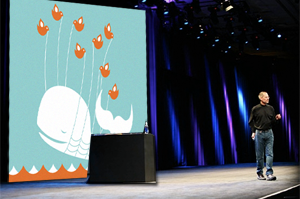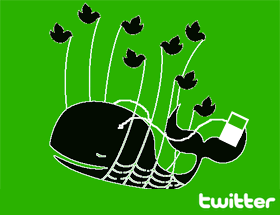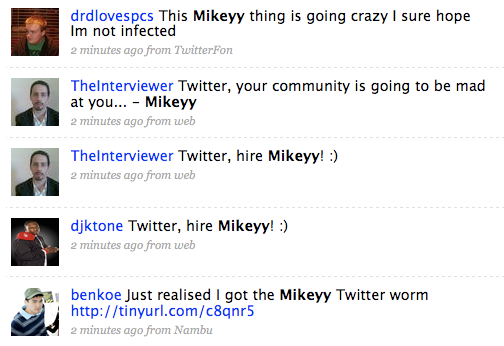 I like to think I’m reasonably well-informed about Google’s offerings, but if I’d ever heard of Google Profiles–which have been around since 2007–I’d forgotten about them. Which was understandable enough, since they were merely brief personal bios that you could associate with a few Google services such as Reader.
I like to think I’m reasonably well-informed about Google’s offerings, but if I’d ever heard of Google Profiles–which have been around since 2007–I’d forgotten about them. Which was understandable enough, since they were merely brief personal bios that you could associate with a few Google services such as Reader.
Today, Google Profiles got considerably more important: The company is revealing them in search results, and it’s encouraging users to fill them out by running text ads for them when you search for names. I just filled out the basics of my profile, which you’ll find here.
Google says it’s doing this to give all of us more control over what other people see when they Google for our names. Interestingly, though, it’s intentionally suppressing Google Profiles in results just as much as it can without bumping them off the first page of results altogether: They appear at the bottom of the page. You get up to four of them (if there are enough people who match the name who have filled out Google Profiles) along with links to do a search for the name on MySpace, Facebook, Classmates, and LinkedIn,

The placement of Google Profiles in results–findable if you know where to look, but not too prominent–is presumably to prevent anyone from accusing Google of favoring its own service over LinkedIn, Facebook, MySpace, Twitter, personal blogs, professional sites, and all the other places on the Web where people tell the world about themselves. Which makes sense, since Google Profiles are so basic that they’re only going to be the profile of record for people who haven’t done any real social networking at all.
But it also means that having a Google Profile doesn’t give you much control over what people will find when they Google for your name. If the first three results are currently a news story falsely accusing you of stealing cheese, a YouTube video of you pretending to play with a light saber, and a diatribe by someone you annoyed in preschool, they’ll all still be there no matter how self-laudatory your Google Profile is. And even if you use the profile to defend yourself, Google users will only see it if they notice it at the bottom of the page and click through.
Google Profiles also let you set up a vanity URL for your profile (mine’s at http://www.google.com/profiles/harrymccracken). Over at Search Engine Land, Danny Sullivan has a typically exhaustive and insightful look at Google Profile’s new features, in which he points out that if your Google Account is associated with a Gmail account–which is usually the case–your profile’s vanity URL will disclose your Gmail address. For instance, I’m harrymccracken-at-gmail-com on Gmail. I don’t mind if you know that–hey, it’s kind of obvious–but if you’re careful about disclosing your e-mail address you might want to think before you use Google Profiles.
If the definition of a social network involves the ability to associate yourself with friends, family, colleagues, and other people you’re connected to, Google Profiles doesn’t amount to a social network, even in its new, more high-profile form: There’s no way for me to use my profile to friend anyone else who has a profile. Which is kind of strange considering that friending exists elsehwhere in the Googleverse–for instance, you can set up a list of friends in Google Reader, but it doesn’t travel over to your profile. And as far as I can tell, Google Friend Connect, which lets you add social-networking features to any site, has nothing whatsoever to do with Google Profiles.
In Orkut, Google created one of the original social networks, but it turned out to be a big hit in only two countries: Brazil and India. You gotta wonder if Google ever looks at Facebook or Twitter and gets wistful about what might have been. Now that Google Profiles are easy to find–at least kind of–I’d be startled if the company didn’t add more features over time that leave them feeling less like disconnected, static biographies and more like–I hate this term, but it fits here–a social graph.

 Okay, so the chances of Apple buying Twitter seem nearly as remote as the odds that Twitter will buy Apple. It’s still fun to think about what might transpire if it did:
Okay, so the chances of Apple buying Twitter seem nearly as remote as the odds that Twitter will buy Apple. It’s still fun to think about what might transpire if it did: Owen Thomas of Valleywag has published a rumor which is both wildly entertaining and wildly improbable:
Owen Thomas of Valleywag has published a rumor which is both wildly entertaining and wildly improbable: 
 The race between Twitter and Facebook is starting to look like Tortoise vs. Hare. I don’t mean that as a value judgment, or a prediction that Twitter is headed for victory and Facebook for a fall. It’s just that Twitter’s strategy to to go slow and steady–it’s only
The race between Twitter and Facebook is starting to look like Tortoise vs. Hare. I don’t mean that as a value judgment, or a prediction that Twitter is headed for victory and Facebook for a fall. It’s just that Twitter’s strategy to to go slow and steady–it’s only  I got real excited when I heard about the new
I got real excited when I heard about the new 



 I like to think I’m reasonably well-informed about Google’s offerings, but if I’d ever heard of
I like to think I’m reasonably well-informed about Google’s offerings, but if I’d ever heard of 
 This has not been a good weekend at Twitter, where a series of worms has been annoying the heck out of people by infecting their accounts and sending out fake tweets under their name. The first one
This has not been a good weekend at Twitter, where a series of worms has been annoying the heck out of people by infecting their accounts and sending out fake tweets under their name. The first one 

 [A NOTE FROM HARRY: Introducing a new Technologizer feature–T-Debates! In this inaugural one, Dave Worthington and I have at it about the value of Twitter–he’s doubtful it has much at all, while I’m a Twitter optimist. But we’re mainly doing this in hopes that you’ll continue the conversation in comments, whatever your stance.]
[A NOTE FROM HARRY: Introducing a new Technologizer feature–T-Debates! In this inaugural one, Dave Worthington and I have at it about the value of Twitter–he’s doubtful it has much at all, while I’m a Twitter optimist. But we’re mainly doing this in hopes that you’ll continue the conversation in comments, whatever your stance.]